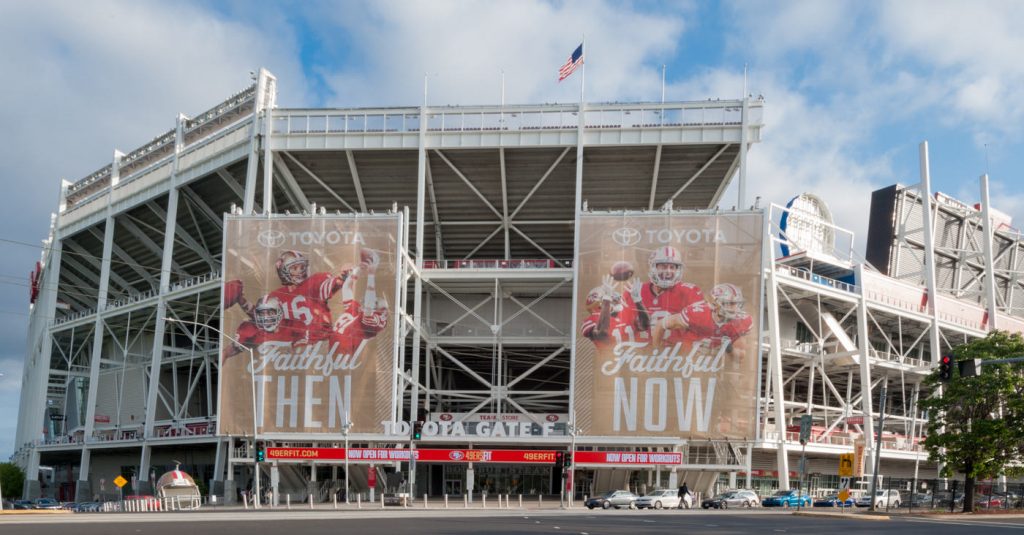Last week, the City of Santa Clara announced that it was initiating the process to end the management contracts it signed in 2012 and 2013 with the San Francisco 49ers. The move can be seen as the beginning of Mayor Lisa Gillmor’s 2016 threat to “take over” Levi’s Stadium management from the 49ers. However, the 49ers have returned her attack by serving the City a lawsuit for breach of contract and asking for a judge to declare the stadium management contract in effect until procedures outlined by the contract are followed.
“The 49ers filed suit for declaratory relief in Santa Clara County Superior Court,” the 49ers said in a statement. “The suit was necessitated by the public confusion caused by Mayor Gillmor, the City Attorney, and City Manager Santana’s complete misunderstanding of the Management Agreement.”
The 49ers say that the City’s “stated grounds for the purported action are baseless,” and further, that the contract has no provision for what the City is labeling a “partial termination.”
To City Hall’s claims that the 49ers committed fraud by claiming “public assembly facilities” management experience they didn’t have, the 49ers counter that the Levi’s Stadium management team has extensive experience.
Stadium Operations and General Manager Jim Mercurio was Candlestick Park’s Operations Manager and was part of the Department of Homeland Security’s first Large Stadium Initiative Program in 2005, developing Best Practices for NFL Security.
The City also claims that the precipitous drop in non-NFL events in the last two years is evidence of the 49ers’ lack of experience. “The decline was in large measure the consequence of …the City’s and the SCSA’s vacillating arbitrary and onerous restrictions…early curfews, disparaging comments, and public disclosure of confidential information.”
In answer to the City’s accusations of misappropriation and self-dealing, the 49ers reply that unprofitable events aren’t “misappropriation.” Many of those money-losing events are high school football games, which some would argue deliver community benefits that aren’t measurable in cash.
What the City is calling “self-dealing” is suite revenue — something that was agreed to in the contracts. The 49ers receive “no revenue from Non-NFL Events apart from what is transparently specific in the Management Agreement…Suite revenue…is allocated in accordance with written agreements that were negotiated and executed” by the 49ers and the City Council.
“It is,” the 49ers say, “absurd and unreasonable to label as ‘self-dealing,’ the adherence to the terms of the parties’ written business relationship.”
To the City ‘s accusation of failing to comply with prevailing wage and public procurement requirements — the immediate cause cited by the City for its “partial termination” — that in its Notice of Breach, the City failed to identify a single circumstance constituting a violation.”
The 49ers identified two subtracts that had “raised questions.” In response, “the Stadium Manager took immediate steps to cure any possible deviation from prevailing…requirements…SCSA refused to acknowledge this solution.”
In their brief, the 49ers write that the reason for high barriers to ending the management agreement was necessary:
“Recognizing that the City’s elected leadership and political climate would change over the contemplated 40-year span of the economic relationship…the parties were careful to ensure that …agreements contain protections against the risk that such volatility would undermine the operation of the Stadium.”
